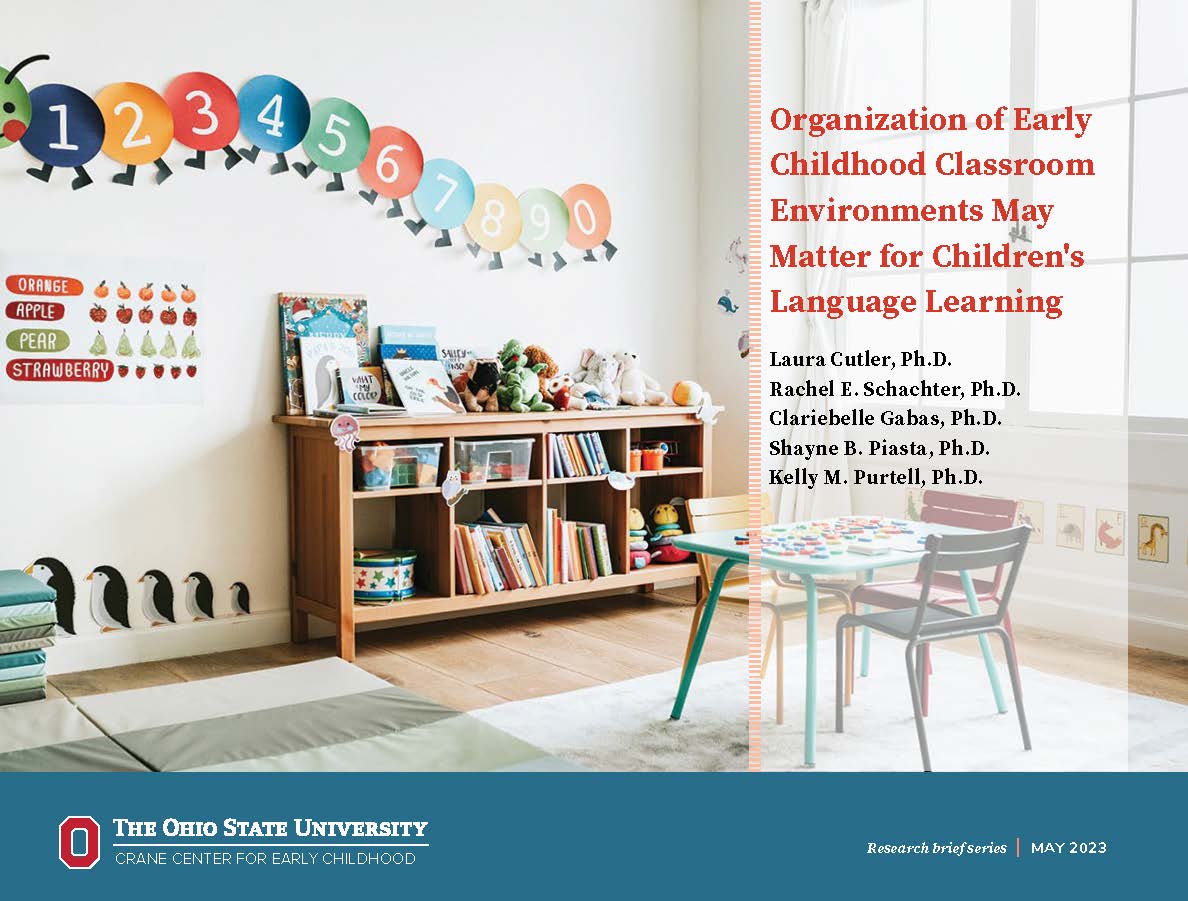About the brief
Early language skills are a key part of children’s development and the environment of the classroom itself can play a role in supporting early language development. With over 12 million American children younger than age five attending some type of non-parental care, it is crucial to understand how early learning classroom environments can be best organized to promote the development of language skills.
This research brief led by Dr. Laura Cutler shares findings from a recent study examining the classroom organization of 60 preschool classrooms. Researchers divided classrooms into two subsets: one group that demonstrated higher language gains throughout a school year, and a second group that demonstrated lower language gains throughout the year. Children’s language gains were measured using an assessment tool given in the fall and spring and classroom organization was measured based on classroom observations using multiple tools throughout the year.
Several key findings
Children in the higher language gains classrooms spent about 10% less time in non-instruction related activities.
Teachers in higher language gains classrooms better organized children’s time and activities at the start of the school year; children in these classrooms also spent less time in large-group circle-time.
Teachers in higher language gains classrooms adjusted classroom schedules across the school year – noting the changing needs of their students as the school year progressed.


